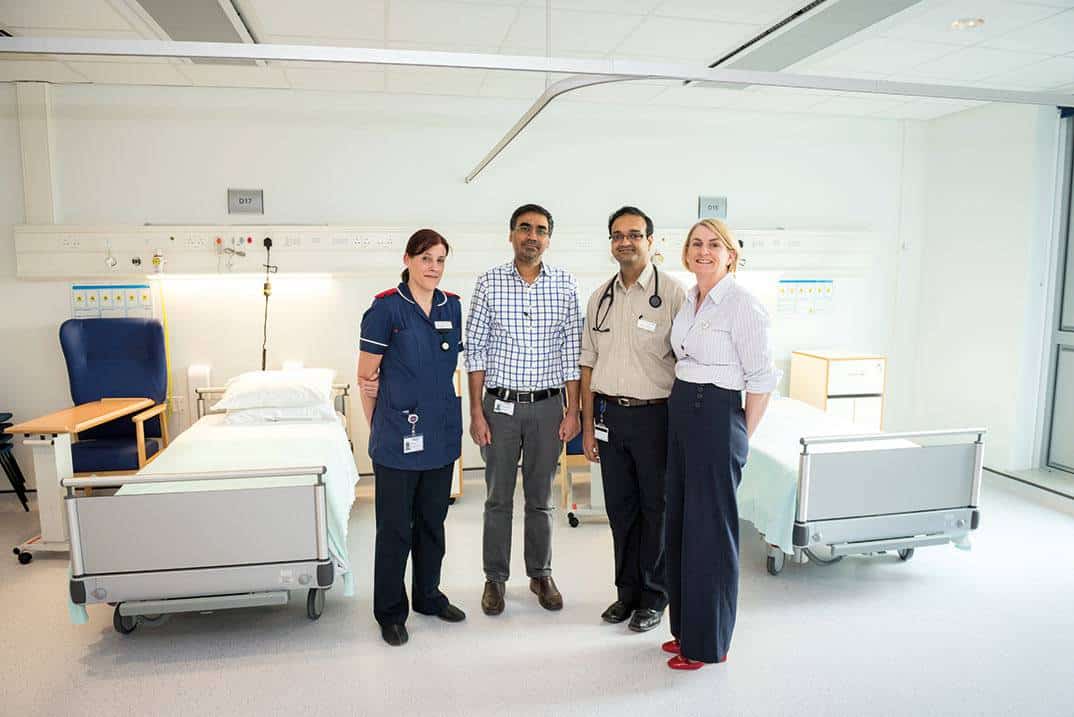Care homes and patients’ groups in the Tonbridge area have welcomed the opening of a new 38-bed ward at Tunbridge Wells Hospital developed to ease pressure on stretched emergency facilities.
It comes as the district’s NHS Trust faces unprecedented demand, with staff forced to cancel 400 procedures during the past three months alone. Facilities at the hospital are reported to be running at a near capacity 98 per cent occupancy rate.
The new £3.3 million acute medical unit (AMU) features two rooms and nine four-bed bays, designed to treat patients requiring less-than 48-hour care. The unit’s team includes three consultants and 56 nurses. The ward replaces former administration offices at the Pembury site.
The new hospital, which opened in 2011, was the first in Britain where every inpatient has their own room with en-suite facilities. The new unit is back to the more traditional multi-bed ward system.
Manager of Chestnut Lodge Care Home in Tonbridge, Sarah Simmons, believed the expansion of the hospital’s services is of key importance.
She said: “If creating 38 more beds helps address the issue of demands on the service then it has to be positive but more work is required to improve hospital patient admission processes.
“Many of our residents have dementia and it can be stressful for older people if when they are taken to hospital they are stuck waiting in a corridor. So having a new ward has got to be good.”
According to Gary Purdy, Chairman of the Friends of Tunbridge Wells Hospital, the group was “well aware of the pressure” that the Trust’s services are under. He said the hospital’s new ward would go some way to improving services.
Maidstone and Tunbridge Wells NHS Trust Chief Operating Officer, Angela Gallagher, said: “The new AMU will allow us to deliver an even better standard of care to our patients, by assessing and treating patients in a timely way, facilitating their discharge and directing appropriate patients onto specialist wards.
“It will allow us to carefully manage getting back to our normal working patterns as quickly as possible.”
Ian Ayres, the Accountable Officer for the NHS West Kent Clinical Commissioning Group, backed expansion of facilities at the hospital.
He said: “The majority of these beds are ambulatory care beds, which improves the flow of patients into the hospital and enhances the patient experience by reducing the time spent in a hospital bed. It will also reduce the total time a patient spends in hospital by facilitating early diagnostic tests and prompt treatments.”








